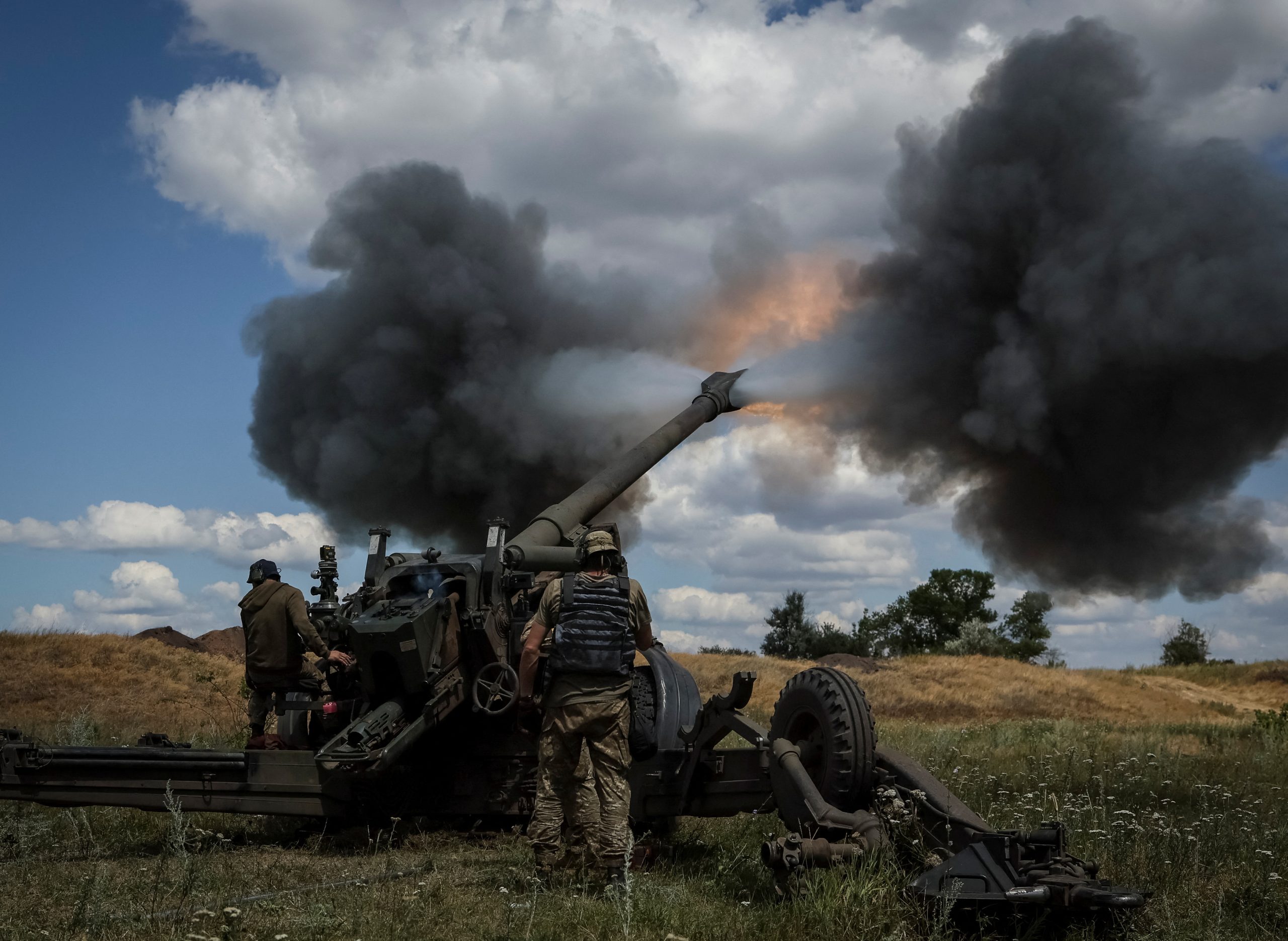
Chris Lange, FISM News
[elfsight_social_share_buttons id=”1″]
Ukrainian military leaders are crediting U.S.-supplied equipment with helping them achieve a “turning point” in the south. Specifically, American-made high mobility artillery rocket systems (HIMARS) have helped Ukrainian forces destroy dozens of Russian ammunition depots.
“We can say that a turning point has occurred on the battlefield. We are switching from defensive to counteroffensive actions,” Sergiy Khlan, an aide to the administrative head of the Kherson region, said in an interview with a Ukrainian television station Sunday, as reported by The Guardian.
“We can say that the Kherson region will definitely be liberated by September, and all the occupiers’ plans will fail,” Khlan added.
Kherson was the first major city captured by Russian forces following the Feb. 24 invasion of Ukraine.
Russia dismissed Khlan’s assessment as “fantasy.”
“That there will be a counteroffensive – all this is fantasy,” Kirill Stremousov, deputy head of the Russian-installed regional authority in Kherson, told RIA Novosti on Sunday.
Britain’s defense ministry confirmed that Russian forces are reinforcing defensive positions in the region in “likely a response to anticipated Ukrainian offensives,” according to the report.
Russia targeting Ukraine’s government
Russian Foreign Minister Sergey Lavrov said Moscow’s military goals in Ukraine have expanded beyond seizing control of the eastern Donbas. Speaking at an Arab League summit in Cairo on Sunday, Russia’s top diplomat said the Kremlin will target the “unacceptable regime” of Volodymyr Zelenskyy.
“We feel sorry for the Ukrainian people, who deserve far better,” Lavrov said. “We feel sorry for Ukrainian history, which is collapsing before our eyes.”
Zelenskyy maintains that Ukraine will continue fighting for its independence.
Russia bogged down by ‘dated intelligence, poor planning’
Britain’s defense ministry on Tuesday tweeted that Russia’s efforts to destroy Ukraine’s anti-ship capabilities in the Black Sea have been hampered by “dated intelligence, poor planning, and a top-down approach to operations.” The assessment comes two days after Russia’s missile strike on Odesa Sunday, which was condemned by the international community.
The U.K.’s Ministry of Defense said Moscow’s goal of overtaking the Black Sea port city was unrealistic.
“Russia almost certainly perceives anti-ship missiles as a key threat which is limiting the effectiveness of their Black Sea fleet. This has significantly undermined the overall invasion plan, as Russia cannot realistically attempt an amphibious assault to seize Odesa,” the agency said.
Sunday’s attack threatened to undercut last week’s agreement between Ukraine, Russia, and Turkey to resume grain shipments from Ukraine.
Russia gas cuts to Europe
Meanwhile, Russia’s Gazprom said that it will cut natural gas deliveries to Europe through the Nord Stream 1 pipeline beginning Wednesday. The move will reduce natural gas flows to only 20% of the pipeline’s capacity. It also comes just days after Gazprom resumed shipments to Europe following a 10-day halt for maintenance.
Russian President Vladimir Putin had previously warned that a delay in the return of a gas turbine from Canada could lead to the Nord Stream drop. Germany’s climate and economic affairs ministry, however, said that under EU sanctions law, no exemption is required for the turbine to be sent back to Russia, according to a Politico report.
“According to our information, there is no technical reason for a reduction in deliveries,” it said.
The turbine is currently in Germany.
Gazprom has come under fire for cutting supplies to 12 European countries in what European officials say is a purely retaliatory response to economic sanctions over Russia’s invasion of Ukraine. Russian officials deny the accusations.
